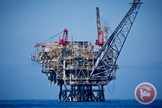22 dec 2018

The United Nations General Assembly adopted, by an overwhelming majority, a resolution that affirms the right of the Palestinian people to sovereignty over their natural resources.
The resolution was adopted by a recorded vote of 159 in favour to 7 against (Canada, Israel, Kiribati, Marshall Islands, Micronesia, Nauru, United States), with 13 abstentions.
The resolution stresses permanent sovereignty of the Palestinian people in the occupied Palestinian territory, including East Jerusalem, and of the Arab population in the occupied Syrian Golan over their natural resources.
By that text, the Assembly demanded that Israel cease the exploitation, damage, cause of loss or depletion and endangerment of the natural resources in the occupied Palestinian territory, including East Jerusalem, and in the occupied Syrian Golan.
By further terms, the Assembly stressed that the wall and settlements being constructed by Israel in the occupied Palestinian territory are contrary to international law and are seriously depriving the Palestinian people of their natural resources.
The resolution was adopted by a recorded vote of 159 in favour to 7 against (Canada, Israel, Kiribati, Marshall Islands, Micronesia, Nauru, United States), with 13 abstentions.
The resolution stresses permanent sovereignty of the Palestinian people in the occupied Palestinian territory, including East Jerusalem, and of the Arab population in the occupied Syrian Golan over their natural resources.
By that text, the Assembly demanded that Israel cease the exploitation, damage, cause of loss or depletion and endangerment of the natural resources in the occupied Palestinian territory, including East Jerusalem, and in the occupied Syrian Golan.
By further terms, the Assembly stressed that the wall and settlements being constructed by Israel in the occupied Palestinian territory are contrary to international law and are seriously depriving the Palestinian people of their natural resources.
26 oct 2018

Today, on 26 October 2018, Al-Haq, Al Mezan Center for Human Rights and the Palestinian Center for Human Rights (PCHR) submitted a 500-page file on alleged crimes committed by Israelis, in particular high-level Israeli officials, and individuals associated with corporations that are extracting and destroying Palestinian natural resources.
The organisations provide a reasonable basis to believe that Israelis and private actors have committed the war crimes of extensive destruction and appropriation of property, pillage, and destruction and seizure of property.
The confidential communication provides factual information and legal analysis on the exploitation and destruction of Palestinian water, agricultural land, minerals, mud, stone, and oil.
Mr. Shawan Jabarin, Al-Haq’s General Director, said that “in situations of armed conflict, the trade and business in natural resources have often been strong incentives for war and violence, and provided the finances necessary to maintain and prolong an armed conflict.
The situation in Palestine is a case of such exploitation, in which Israelis and private actors have been deliberately and openly exploiting Palestinian natural resources for at least five decades.
The exploitation of Palestinian natural resources by Israel, Israelis, as well as corporations, finances and thereby sustains and allows for the expansion of Israeli settlements, including by providing profitable employment to settlers and a secure living environment.”
Mr. Issam Younis, Al Mezan’s Director, also said that “Israel, acting as the Occupying Power has engaged in a deliberate and wide-scale exploitation and destruction of significant Palestinian resources in the OPT, as part of an overall policy to annex, exercise sovereignty, and ensure full non-consensual Israeli domination over Palestinian territory.”
Israel, along with and through Israeli and international non-state actors, including corporations, have unlawfully extracted Palestinian natural resources in the OPT, without the lawful consent of the occupied population therein, and solely for the benefit of the Israeli economy and population, including illegal Israeli settlements.
Israel has also permitted and encouraged private actors to exploit Palestinian natural resources. Such private actors include business enterprises in agricultural and industrial settlements, as well as Israeli and multinational corporations.
Israel’s unrestricted and unilateral exploitation of Palestinian natural resources will eventually lead to the depletion of Palestinian natural resources, to the detriment of the Palestinian occupied population and in violation of Israel’s customary international law obligations.
Furthermore, the appropriation, destruction, seizure, and pillaging of Palestinian natural resources have serious social, economic, and environmental impact on the affected Palestinian communities, and notably infringe on Palestinians’ fundamental right to self-determination.
Mr. Raji Sourani, PCHR Director, said that “considering crimes committed in relation to the exploitation of Palestinian natural resources and the colonisation of the occupied territory, with complete impunity, the ICC Prosecutor must urgently open an investigation into the situation in Palestine.”
This is the sixth Article 15 communication to the Prosecutor of the International Criminal Court (ICC), and it complements the file submitted to the Prosecutor in September 2017 concerning inter alia the transfer of Israeli settlers into the occupied territory, appropriation of Palestinian land, and forcible transfer of the protected Palestinian population.
The organisations provide a reasonable basis to believe that Israelis and private actors have committed the war crimes of extensive destruction and appropriation of property, pillage, and destruction and seizure of property.
The confidential communication provides factual information and legal analysis on the exploitation and destruction of Palestinian water, agricultural land, minerals, mud, stone, and oil.
Mr. Shawan Jabarin, Al-Haq’s General Director, said that “in situations of armed conflict, the trade and business in natural resources have often been strong incentives for war and violence, and provided the finances necessary to maintain and prolong an armed conflict.
The situation in Palestine is a case of such exploitation, in which Israelis and private actors have been deliberately and openly exploiting Palestinian natural resources for at least five decades.
The exploitation of Palestinian natural resources by Israel, Israelis, as well as corporations, finances and thereby sustains and allows for the expansion of Israeli settlements, including by providing profitable employment to settlers and a secure living environment.”
Mr. Issam Younis, Al Mezan’s Director, also said that “Israel, acting as the Occupying Power has engaged in a deliberate and wide-scale exploitation and destruction of significant Palestinian resources in the OPT, as part of an overall policy to annex, exercise sovereignty, and ensure full non-consensual Israeli domination over Palestinian territory.”
Israel, along with and through Israeli and international non-state actors, including corporations, have unlawfully extracted Palestinian natural resources in the OPT, without the lawful consent of the occupied population therein, and solely for the benefit of the Israeli economy and population, including illegal Israeli settlements.
Israel has also permitted and encouraged private actors to exploit Palestinian natural resources. Such private actors include business enterprises in agricultural and industrial settlements, as well as Israeli and multinational corporations.
Israel’s unrestricted and unilateral exploitation of Palestinian natural resources will eventually lead to the depletion of Palestinian natural resources, to the detriment of the Palestinian occupied population and in violation of Israel’s customary international law obligations.
Furthermore, the appropriation, destruction, seizure, and pillaging of Palestinian natural resources have serious social, economic, and environmental impact on the affected Palestinian communities, and notably infringe on Palestinians’ fundamental right to self-determination.
Mr. Raji Sourani, PCHR Director, said that “considering crimes committed in relation to the exploitation of Palestinian natural resources and the colonisation of the occupied territory, with complete impunity, the ICC Prosecutor must urgently open an investigation into the situation in Palestine.”
This is the sixth Article 15 communication to the Prosecutor of the International Criminal Court (ICC), and it complements the file submitted to the Prosecutor in September 2017 concerning inter alia the transfer of Israeli settlers into the occupied territory, appropriation of Palestinian land, and forcible transfer of the protected Palestinian population.
28 sept 2018

In a provocative pro-Israel step, Israel’s Delek Drilling and the U.S. firm Noble Energy said Thursday they were acquiring, together with Egyptian East Gas Company, a 39% stake in the Egyptian company that owns a pipeline running between the Israeli-occupied territories and Egypt.
The two — partners in Israel’s Tamar and Leviathan gas fields — said they were paying $518 million for the stake in Eastern Mediterranean Gas and expect to complete the deal and related transactions by early next year.
“This is a historic transaction, that renders Egypt a regional energy center and positions it in line with significant global energy centers,” said Delek Drilling CEO Yossi Abu.
Shares of Delek Drilling, the Delek Group unit involved in the deal, rose 3.1% to 10.79 shekels ($2.99) on the Tel Aviv Stock Exchange. Nobel shares were up 1% at $31.41 midday local time in New York.
Buying an interest in the pipeline will enable the Tamar and Leviathan partners to deliver their gas to Egypt as they agreed under an agreement reached in February to supply 64 billion cubic meters of gas for $15 billion over 10 years.
The gas will initially come from Tamar, which is in production, and later from the much bigger Leviathan field, now in development. The buyer for the gas is Dolphinus, an Egyptian company that supplies gas to industrial and institutional users.
“Today’s announcements mark significant steps forward in supplying natural gas from the world-class Tamar and Leviathan fields to regional customers through existing infrastructure,” said J. Keith Elliott, Noble’s senior vice president for offshore operations.
Another beneficiary from the deal will be the bondholders of the Israeli company Ampal American, which was an EMG shareholder and went bankrupt when the pipeline was shut down. The stake in EMG changing hands comprises an 8.6% holding owned by Ampal.
Other sellers include Yossi Maiman, who had controlled Ampal and personally held another 8.2% of EMG; American billionaire Sam Zell (12.8%); Israeli institutional investors (8.2%) and Egyptian businessman Hussein Salem. The remainder of EMG’s shares will continue to be held by Hussein Salem’s company (28%) the Thai company PTT (25%) and the Egyptian government (about 10%).
According to Haaretz daily, had Thursday’s deal not been reached, there were two alternatives to using the EMG pipeline. One was to use the Jordanian pipeline, called the Pan-Arabian pipeline; the other was to build a new pipeline. But using EMG’s will enable the companies to begin exporting gas sooner.
The two — partners in Israel’s Tamar and Leviathan gas fields — said they were paying $518 million for the stake in Eastern Mediterranean Gas and expect to complete the deal and related transactions by early next year.
“This is a historic transaction, that renders Egypt a regional energy center and positions it in line with significant global energy centers,” said Delek Drilling CEO Yossi Abu.
Shares of Delek Drilling, the Delek Group unit involved in the deal, rose 3.1% to 10.79 shekels ($2.99) on the Tel Aviv Stock Exchange. Nobel shares were up 1% at $31.41 midday local time in New York.
Buying an interest in the pipeline will enable the Tamar and Leviathan partners to deliver their gas to Egypt as they agreed under an agreement reached in February to supply 64 billion cubic meters of gas for $15 billion over 10 years.
The gas will initially come from Tamar, which is in production, and later from the much bigger Leviathan field, now in development. The buyer for the gas is Dolphinus, an Egyptian company that supplies gas to industrial and institutional users.
“Today’s announcements mark significant steps forward in supplying natural gas from the world-class Tamar and Leviathan fields to regional customers through existing infrastructure,” said J. Keith Elliott, Noble’s senior vice president for offshore operations.
Another beneficiary from the deal will be the bondholders of the Israeli company Ampal American, which was an EMG shareholder and went bankrupt when the pipeline was shut down. The stake in EMG changing hands comprises an 8.6% holding owned by Ampal.
Other sellers include Yossi Maiman, who had controlled Ampal and personally held another 8.2% of EMG; American billionaire Sam Zell (12.8%); Israeli institutional investors (8.2%) and Egyptian businessman Hussein Salem. The remainder of EMG’s shares will continue to be held by Hussein Salem’s company (28%) the Thai company PTT (25%) and the Egyptian government (about 10%).
According to Haaretz daily, had Thursday’s deal not been reached, there were two alternatives to using the EMG pipeline. One was to use the Jordanian pipeline, called the Pan-Arabian pipeline; the other was to build a new pipeline. But using EMG’s will enable the companies to begin exporting gas sooner.
7 aug 2018

The Egyptian General Petroleum Corporation confirmed that a private Egyptian company plans to start importing gas from Israel for re-export during the first quarter of 2019.
The plans to import gas from Israel comes after agreements signed in February 2018 to buy $15 billion worth of gas over the next decade.
The private Egyptian company, Dolphinus Holdings, said that "Imports will start in small quantities first and will gradually increase to reach their climax in September 2019."
No specific prices or quantities were released.
Partners in Israel's Tamar and Leviathan offshore gas fields, which include Delek Group, Isramco and Ratio, agreed with Dolphinus Holdings to provide a total of 64 billion cubic meters of gas over the next ten years.
Half of the supply will come from each field and the proceeds will also be split equally in half.
The start date of exports was not yet set.
The Israeli Minister of Energy, Yuval Steinitz, said that the agreement between Dolphinus Holdings and Israel was Egypt’s most important export deal since the two countries signed the peace treaty in Washington in 1979.
The plans to import gas from Israel comes after agreements signed in February 2018 to buy $15 billion worth of gas over the next decade.
The private Egyptian company, Dolphinus Holdings, said that "Imports will start in small quantities first and will gradually increase to reach their climax in September 2019."
No specific prices or quantities were released.
Partners in Israel's Tamar and Leviathan offshore gas fields, which include Delek Group, Isramco and Ratio, agreed with Dolphinus Holdings to provide a total of 64 billion cubic meters of gas over the next ten years.
Half of the supply will come from each field and the proceeds will also be split equally in half.
The start date of exports was not yet set.
The Israeli Minister of Energy, Yuval Steinitz, said that the agreement between Dolphinus Holdings and Israel was Egypt’s most important export deal since the two countries signed the peace treaty in Washington in 1979.
1 mar 2018

Ongoing talks on the possibility of EU purchases of Israel’s natural gas put into question the EU’s commitment to Palestinian rights under international law.
The EU has made a strong commitment towards energy transition to renewable sources and has developed an ambitious strategy to meet Paris Agreement climate change targets.
At the same time the EU has spent millions in the recent years on new gas infrastructure projects and billions of euros more are expected for 104 new gas projects included in the third list of Projects of Common Interest (PCI) published by the Commission.
Natural gas is a fossil fuel composed of methane, which is 86 times more potent as a heat-trapping gas than CO2. With this massive investment, the EU is locking its dependence on fossil fuel for decades to come. As a recent report has shown, the gas corporate lobby is entrenching Europe’s addiction to fossil fuels.
In 2016 alone, “gas corporations and their lobby groups spent over €100 million on influencing EU [energy] policy, with more than 1,000 lobbyists on their payroll. … By comparison, public interest groups lobbying against new gas infrastructure managed to mobilize just 3% of industry’s spending.”
This not only puts into question the EU’s ability to meet climate change targets but also give rise to serious human rights concerns and the adverse social impact on communities where the pipelines are expected to cross.
Ongoing talks on the possibility of EU purchases of Israel’s natural gas put into question the EU’s commitment to Palestinian rights under international law. As this briefing by the Palestinian BDS National Committee (BNC) explains, by purchasing gas from Israel, whether directly or indirectly, the EU would become complicit in Israel’s illegal annexation of the occupied Palestinian territory, its illegal settlements and the war crime of pillage of Palestinian natural resources – all in contravention of the EU’s international commitments and legal obligations.
Fueling Impunity: Israel’s Gas Exports to Europe by BNC on Scribd
Via the Palestinian BDS National Committee (BNC).
The EU has made a strong commitment towards energy transition to renewable sources and has developed an ambitious strategy to meet Paris Agreement climate change targets.
At the same time the EU has spent millions in the recent years on new gas infrastructure projects and billions of euros more are expected for 104 new gas projects included in the third list of Projects of Common Interest (PCI) published by the Commission.
Natural gas is a fossil fuel composed of methane, which is 86 times more potent as a heat-trapping gas than CO2. With this massive investment, the EU is locking its dependence on fossil fuel for decades to come. As a recent report has shown, the gas corporate lobby is entrenching Europe’s addiction to fossil fuels.
In 2016 alone, “gas corporations and their lobby groups spent over €100 million on influencing EU [energy] policy, with more than 1,000 lobbyists on their payroll. … By comparison, public interest groups lobbying against new gas infrastructure managed to mobilize just 3% of industry’s spending.”
This not only puts into question the EU’s ability to meet climate change targets but also give rise to serious human rights concerns and the adverse social impact on communities where the pipelines are expected to cross.
Ongoing talks on the possibility of EU purchases of Israel’s natural gas put into question the EU’s commitment to Palestinian rights under international law. As this briefing by the Palestinian BDS National Committee (BNC) explains, by purchasing gas from Israel, whether directly or indirectly, the EU would become complicit in Israel’s illegal annexation of the occupied Palestinian territory, its illegal settlements and the war crime of pillage of Palestinian natural resources – all in contravention of the EU’s international commitments and legal obligations.
Fueling Impunity: Israel’s Gas Exports to Europe by BNC on Scribd
Via the Palestinian BDS National Committee (BNC).
20 feb 2018

Israeli gas fields in the Mediterranean will soon be providing gas exports to Egypt as a part of a 10-year, $15 billion deal announced on Monday.
According to the PNN, Israeli gas excavation companies Delek Drilling and Noble Energy will export roughly seven-billion cubic-meters of gas annually from drilling platforms in the Mediterranean, namely the Leviathan and Tamar gas fields, to Egyptian Company Dolphin Energy for the duration of the deal.
In a public statement posted online, Israeli Prime Minister Benjamin Netanyahu praised the deal, adding that it would strengthen ‘security, economy, and regional relationships.’
Some have criticized the deal as being merely symbolic. As of yet, there are no plans for means of exportation of the gas to Egypt.
As reported by the Jerusalem post, the most obvious means, the East Mediterranean Gas line, which runs parallel with the Gaza Strip, was declared insolvent by its parent company, EGS.
‘There’s not even a route determined, so it’s hard to sign a binding agreement,” said Brenda Shaffer, an American-Israeli professor at Georgetown University in Washington in an interview with the Jerusalem Post.
Alternative routes through Jordan would require subsequent negotiations with Jordanian officials before the flow of oil could proceed.
The announcement comes amid warming relations between Israel and Egypt.
Earlier this month, an investigation conducted by the New York Times revealed an extensive campaign of airstrikes conducted by the Israeli military in the Sinai Peninsula.
Egyptian armed forces have struggled in recent years to contain the violent insurgency that erupted in the region in 2013 when groups with ties to the Islamic State group emerged. They have since carried out a series of deadly attacks against minority ethnic groups in the peninsula, including Coptic Christians and Sufi adherents, as well as against the Egyptian armed forces.
The Egyptian armed forces have struggled to contain armed groups within the peninsula which remains mostly tribal and comprised of mostly Bedouin communities.
The investigation by the New York Times revealed that security cooperation by Israel and Egypt had exceeded that which was previously made public. Rather, Israel had carried out a number of airstrikes in the region and had taken measures to disguise the fact that the attacks were originating from Israel and not Egypt, principally by adjusting flight paths so as to appear to be coming from Egypt.
The two oil fields in question pose additional challenges to the deal.
The Tamar field is nearing exhaustion and the Levitation field is yet to be operational, with platforms still under construction and expected not to be operational till 2019.
Exportation from the Leviathan field to Egypt would accompany an existing deal made with Jordan in 2016 to supply Jordan with gas from the Leviathan field for a period of 15 years. The deal made with Jordanian National Electric Power Company was worth $10 billion.
04/13/17 How Israel Uses Gas to Enforce Palestinian Dependency and Promote Normalization
According to the PNN, Israeli gas excavation companies Delek Drilling and Noble Energy will export roughly seven-billion cubic-meters of gas annually from drilling platforms in the Mediterranean, namely the Leviathan and Tamar gas fields, to Egyptian Company Dolphin Energy for the duration of the deal.
In a public statement posted online, Israeli Prime Minister Benjamin Netanyahu praised the deal, adding that it would strengthen ‘security, economy, and regional relationships.’
Some have criticized the deal as being merely symbolic. As of yet, there are no plans for means of exportation of the gas to Egypt.
As reported by the Jerusalem post, the most obvious means, the East Mediterranean Gas line, which runs parallel with the Gaza Strip, was declared insolvent by its parent company, EGS.
‘There’s not even a route determined, so it’s hard to sign a binding agreement,” said Brenda Shaffer, an American-Israeli professor at Georgetown University in Washington in an interview with the Jerusalem Post.
Alternative routes through Jordan would require subsequent negotiations with Jordanian officials before the flow of oil could proceed.
The announcement comes amid warming relations between Israel and Egypt.
Earlier this month, an investigation conducted by the New York Times revealed an extensive campaign of airstrikes conducted by the Israeli military in the Sinai Peninsula.
Egyptian armed forces have struggled in recent years to contain the violent insurgency that erupted in the region in 2013 when groups with ties to the Islamic State group emerged. They have since carried out a series of deadly attacks against minority ethnic groups in the peninsula, including Coptic Christians and Sufi adherents, as well as against the Egyptian armed forces.
The Egyptian armed forces have struggled to contain armed groups within the peninsula which remains mostly tribal and comprised of mostly Bedouin communities.
The investigation by the New York Times revealed that security cooperation by Israel and Egypt had exceeded that which was previously made public. Rather, Israel had carried out a number of airstrikes in the region and had taken measures to disguise the fact that the attacks were originating from Israel and not Egypt, principally by adjusting flight paths so as to appear to be coming from Egypt.
The two oil fields in question pose additional challenges to the deal.
The Tamar field is nearing exhaustion and the Levitation field is yet to be operational, with platforms still under construction and expected not to be operational till 2019.
Exportation from the Leviathan field to Egypt would accompany an existing deal made with Jordan in 2016 to supply Jordan with gas from the Leviathan field for a period of 15 years. The deal made with Jordanian National Electric Power Company was worth $10 billion.
04/13/17 How Israel Uses Gas to Enforce Palestinian Dependency and Promote Normalization
